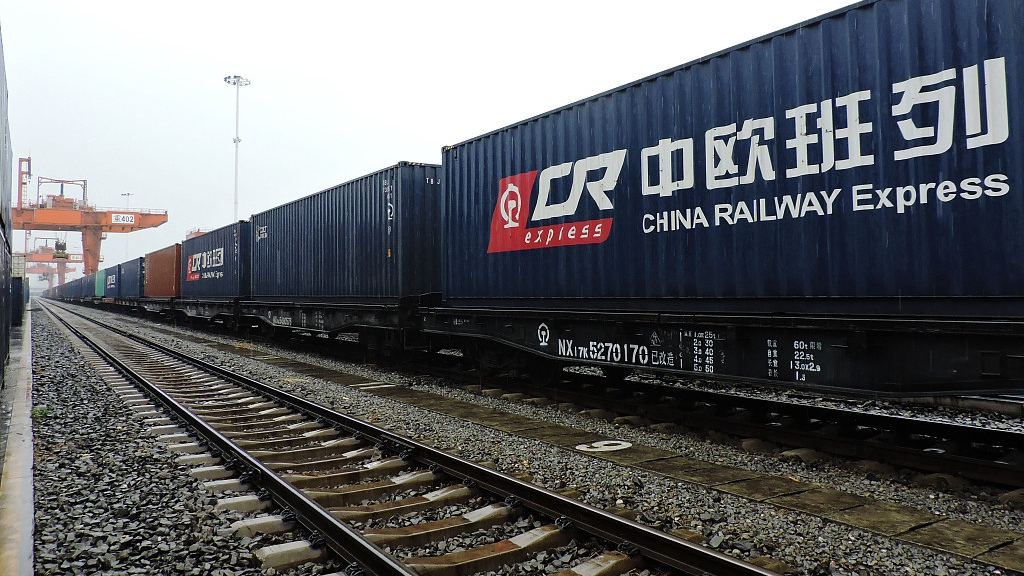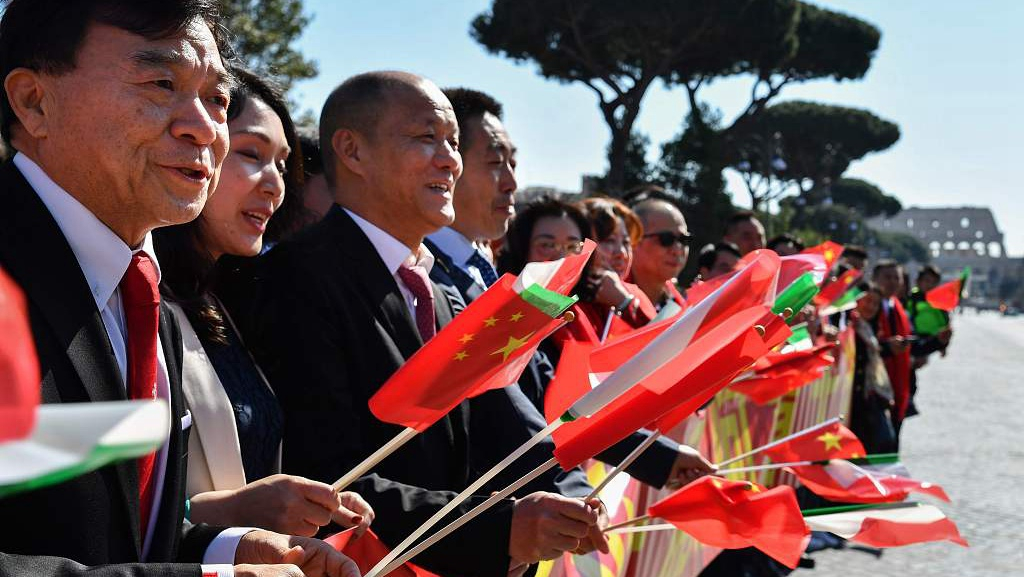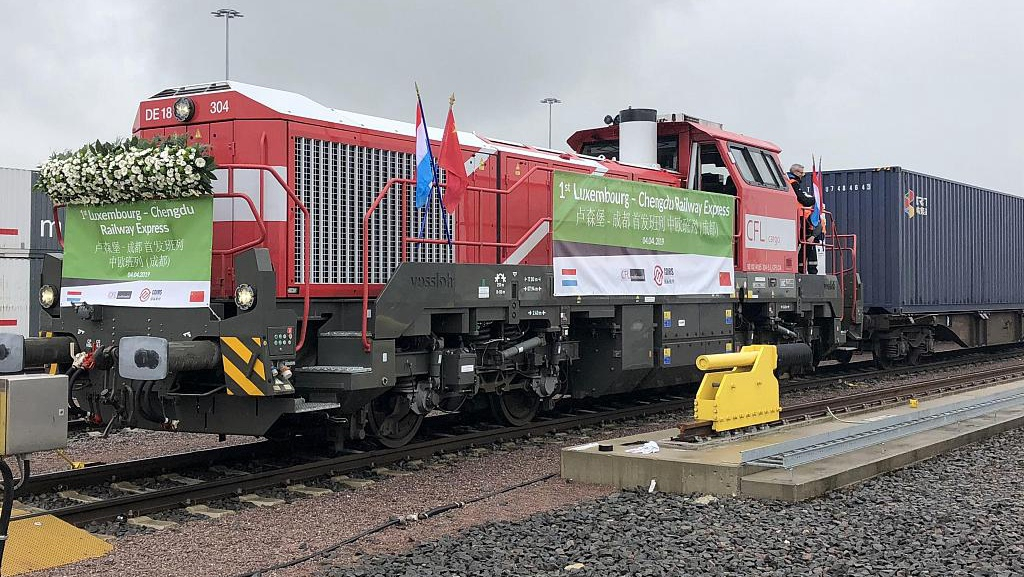
Opinion
22:17, 09-Apr-2019
China can help the EU solve its identity crisis
Adam Garrie

Editor's Note: Adam Garrie is the director of the UK-based global policy and analysis think tank Eurasia Future and co-host of talk show "The History Boys." The article reflects the author's opinion, and not necessarily the views of CGTN.
The European Union is currently facing multiple challenges but most of these stem from a collective identity crisis. The EU does not know whether to focus more on global trade or internal political integration. The EU likewise remains conflicted about whether to shadow American global policy or whether to offer a proverbial third way. When one combines these existential issues with questions of the northern vs southern European economic models and the ongoing Brexit deadlock, it becomes clear that the EU requires major win-win solutions to unite its various socioeconomic and political elements.
Chinese President Xi Jinping's recent visit to Italy marked a turning point in China-EU relations as one of the top five economies in the EU agreed to sign a memorandum of understanding with China in relation to joining the Belt and Road Initiative (BRI). While Italy is not the first EU member state to sign up to the BRI, it is the biggest thus far and one with noted historical links to the ancient silk road.

Chinese people wave Italian and Chinese flags near Piazza Venezia in Rome to welcome President Xi Jinping on his two-day visit to Italy, March 22, 2019. /VCG Photo
Chinese people wave Italian and Chinese flags near Piazza Venezia in Rome to welcome President Xi Jinping on his two-day visit to Italy, March 22, 2019. /VCG Photo
This week, Premier Li Keqiang will travel throughout Europe and has already met some of the top EU and national officials. In addition, Li will also discuss China-EU relations with EU leaders at China-EU leaders meeting as well as a meeting of the China and Central and Eastern European countries (CEEC) in the 16+1 format.
For an EU whose economy is presently experiencing low levels of growth, expanded BRI connectivity and meaningful trading agreements with China could represent a substantial boost to the bloc's economic fortunes.
As China continues to open its markets to historic levels of imports, increased levels of European goods sold in China would represent a substantial increase in the EU's overall exports. Likewise, as the EU is worried about falling behind in terms of technological development, importing Chinese technological goods and hi-tech services could help the EU regain lost ground in important science-driven sectors.
Expanded two-way trade between the EU and China would assure the development of win-win conditions on both sides that would lower the costs of much-sought-after goods whilst simultaneously bringing more revenue into the respective economies. Moreover, such prosperity driving win-win agreements would help the EU to settle its long burning identity crisis.

The first Luxembourg-Chengdu freight train starts at a cargo train station in Dudelange, Luxembourg, April 4, 2019. /VCG Photo
The first Luxembourg-Chengdu freight train starts at a cargo train station in Dudelange, Luxembourg, April 4, 2019. /VCG Photo
While the EU was and remains a partner of the United States, Donald Trump's protectionist policies which continue to be directed against the EU have resulted in the return of long-standing debates about whether the EU should simply follow the U.S. lead in the wider world or otherwise strike a more independent stance that is not afraid to take different views to that of the U.S.
The most important issue in this respect is whether EU leaders are prepared to decouple economic and trading issues from foreign policy meddling. For the United States, advancing its economic interests have long been tied to questions of foreign military intervention, intervention in the political developments of multiple nations and the use of sanctions to change the internal realities of foreign countries.
The EU must therefore determine whether it wants to follow the U.S. model of gunboat economics or whether it wants to return to the more ethically sound letter and spirit of Westphalian diplomacy which respects the inviolability of foreign nations and appreciates that all nations must determine their own destiny in accordance with unique cultural characteristics.
At present, the EU needs some good news and because of that, many within Europe are embracing the optimistic win-win spirit that surrounds recent China-Europe discussions. European leaders and citizens must therefore ask themselves whether they want to prioritize prosperity over geopolitical adventurism or whether the EU is simply content to remain the second-rate U.S.
(If you want to contribute and have specific expertise, please contact us at opinions@cgtn.com.)

SITEMAP
Copyright © 2018 CGTN. Beijing ICP prepared NO.16065310-3
Copyright © 2018 CGTN. Beijing ICP prepared NO.16065310-3